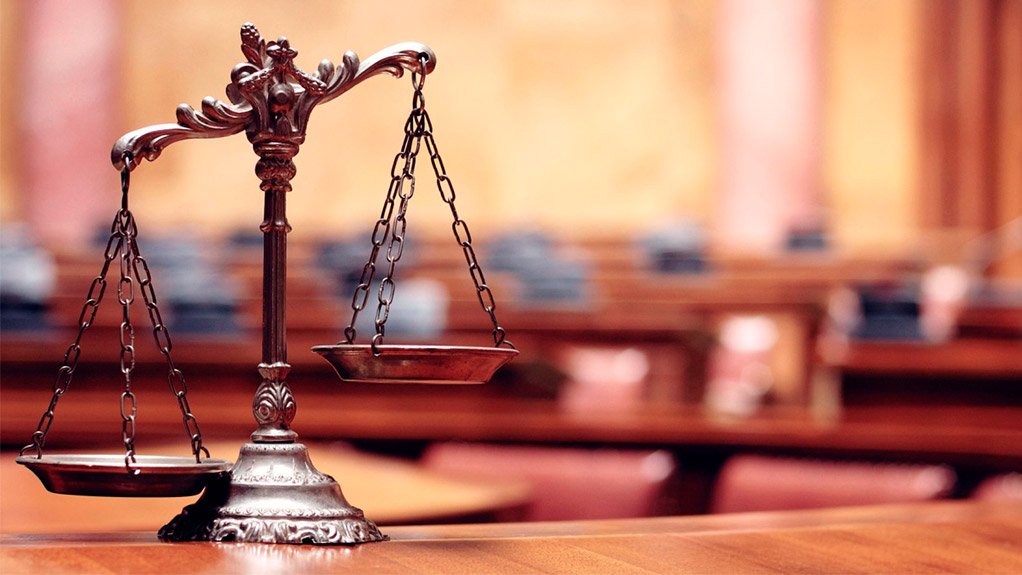Eastern Cape Judge President Selby Mbenenge will be tried by a Judicial Conduct Tribunal regarding his alleged sexual harassment of Makhanda High Court official Andiswa Mengo.
This was confirmed by the Judicial Service Commission (JSC) following its meeting on Friday.
Mbenenge was not immediately recommended for suspension, while the tribunal does its work, because the JSC deferred a decision on that matter.
Instead, he sought special leave from Chief Justice Raymond Zondo from 4 December 2023 to next March.
The announcement of the JSC's decision came as the country's judges were in the middle of a momentous conference at Sun City, debating the judiciary's constitutional role and mandate, as well as issues of ethics and integrity.
The JSC's decision came almost three months after the Judicial Conduct Committee recommended a tribunal be constituted, after it found that Mengo had "a prima facie case, which, if substantiated, will likely result in a finding of gross misconduct" against Mbenenge.
The law requires that the committee's recommendation be confirmed by the JSC, and be constituted by commissioners who are not Members of Parliament.
Zondo has to constitute the tribunal and provide the terms of reference.
The tribunal will collect evidence, conduct a formal hearing, make findings of fact, and make a determination on the merits of the allegations brought against Mbenenge by Mengo.
The law specifically states that the tribunal has to begin and conclude "without unreasonable delay".
But the JSC again added an additional leg to its procedures – inviting Mengo and Mbenenge to make submissions on whether it should advise President Cyril Ramaphosa that the accused judge president should be suspended until the tribunal finalises the case against him.
Mengo's legal representatives have previously requested that Mbenenge be suspended until the complaint is finalised.
The Judicial Service Commission Act states that, when the JSC refers a complaint to a tribunal, it is obliged to advise Ramaphosa of the desirability of suspending the judge implicated in the complaint.
There is nothing in the Constitution or the JSC Act which requires further submissions from the parties before the JSC advises Ramaphosa.
The commission extended a similar, apparently unwarranted, invitation to the parties in September, asking for further submissions ahead of its decision on whether to accept the committee's recommendation.
On Wednesday, JSC spokesperson Sesi Baloyi SC said:
The JSC must and does afford the parties the opportunity to make submissions before it makes a decision either way. It cannot make a decision without hearing the parties who will be affected by its decision either way.
She did not respond to an assertion that there was no rule in the highly-prescribed JSC processes providing for further submissions from parties before a decision to recommend suspension is taken.
The parties have been given until 19 December to make their submissions, after which the commission secretariat will schedule a meeting of the so-called small JSC - excluding politicians - to decide on the suspension issue.
Baloyi also confirmed that, while Mbenenge would be away from his post on special leave until next March, he must "finalise any outstanding judgments and part-heard matters in that period - if he has any - to avoid prejudice to litigants".
If the tribunal finds Mbenenge guilty of the charge brought against him, and the JSC accepts that finding, the judge president could face impeachment by Parliament and eventual removal from office.
Mengo's lawyers said that neither they nor Mengo would comment on the latest development in the process.
"Our client values the importance of respecting the process and wishes to refrain from participating in any media reports," the spokesperson for the Women's Legal Centre, Moenieba Abrahams, said.
Mbenenge did not respond to a request for comment.
EMAIL THIS ARTICLE SAVE THIS ARTICLE
To subscribe email subscriptions@creamermedia.co.za or click here
To advertise email advertising@creamermedia.co.za or click here











